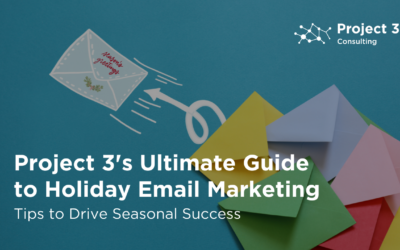
Mailchimp is a popular all-in-one marketing platform that has evolved beyond its roots as an email marketing tool. Today, it’s a powerhouse for small to medium-sized businesses looking to engage customers, manage marketing campaigns, and track analytics with minimal effort. What started as a simple email service has expanded to offer website building, automation, segmentation, social media tools, and more, all wrapped in an easy-to-use interface. With its intuitive design and integration capabilities, Mailchimp has become a go-to solution for marketers who need to drive sales and manage relationships without needing a whole team of experts.
Key Benefits of Mailchimp
All-in-One Platform: Mailchimp’s major selling point is its all-in-one solution. Beyond email marketing, Mailchimp provides a suite of tools that cover everything from building landing pages to running ads on social media. This makes it an ideal choice for businesses looking to streamline their marketing efforts and have everything in one place. You can even manage customer relationships with automation and segmentation, ensuring personalized messaging for each user.
Originally a marketing email platform, Mailchimp has evolved into a comprehensive solution for email, SMS, content creation, segmentation, and analytics—all in one place.
Built-in Email Automation: Mailchimp’s email automation tools are among the platform’s standout features. Whether you’re sending welcome emails, abandoned cart reminders, or special offers, you can automate workflows to nurture leads and boost sales with minimal effort. These automated campaigns are designed to be highly customizable, allowing businesses to create dynamic emails that trigger based on customer actions.
Mailchimp offers popular pre-built customer journeys, making email marketing automation effortless and effective.
Advanced Segmentation and Personalization: Segmenting your email list allows you to send targeted messages to specific customer groups, which improves engagement and conversion rates. Mailchimp makes this easy with its powerful segmentation features, enabling you to send personalized content based on a wide range of factors, such as past purchase behavior, engagement with previous emails, and more.
Comprehensive Reporting and Analytics: Mailchimp offers detailed reporting tools that track how your campaigns are performing. From open rates to click-through rates and customer retention, Mailchimp’s analytics dashboards give you a complete picture of your email marketing performance. These insights help you refine future campaigns and ensure you’re getting the most out of your marketing budget.
Get a comprehensive view of your marketing efforts with Mailchimp’s intuitive marketing dashboard—track performance, optimize campaigns, and grow your audience.
Creative Tools and Templates: Creating engaging email campaigns is a breeze with Mailchimp’s wide range of templates and drag-and-drop design tools. Whether you’re building an email, landing page, or ad, Mailchimp’s easy-to-use interface ensures that your creative assets look polished and professional, even if you don’t have design experience.

Limitations to Consider
Complexity for Advanced Users: While Mailchimp is known for its ease of use, it may not satisfy the needs of advanced marketers. The platform’s customization options, while robust, can feel limiting for users accustomed to the more granular control offered by other email marketing platforms. For example, if you need highly detailed reporting or want to deeply customize automation workflows, you might find Mailchimp’s capabilities lacking.
Pricing Can Be Restrictive for Growing Businesses: Mailchimp’s free tier is a great starting point for small businesses, but as your list grows or you need more advanced features, pricing can become a concern. The platform’s premium plans are priced according to the number of subscribers, which means that costs can escalate quickly as your business expands. Some features that are critical for larger organizations may be restricted to higher-tier plans.
Learning Curve for New Features: Mailchimp has continuously added new features, from website building to ecommerce tools. While this expansion adds a lot of value, it can be overwhelming for new users to get up to speed with all the options. If your business is just starting out, it may take some time to fully take advantage of Mailchimp’s capabilities without feeling like you’re missing out on something important.
Limited A/B Testing Options: Mailchimp does offer A/B testing, but its options are not as robust as those found in other platforms. For example, split testing is limited to a few variables, which might not provide enough insight into how your different campaigns are truly performing.
Mailchimp’s A/B testing lets you compare key variables, but limited options may leave deeper campaign insights just out of reach.
What Makes Mailchimp Stand Out?
Mailchimp’s integration with a wide variety of apps and tools is a key feature that sets it apart. Whether you’re working with Shopify, WooCommerce, or social media platforms like Instagram and Facebook, Mailchimp connects seamlessly to ensure a smooth workflow across all marketing efforts. The ability to manage email marketing, automation, social ads, and customer engagement all from a single dashboard is a huge advantage for busy businesses looking to simplify their processes.
Additionally, Mailchimp’s pricing structure, although potentially expensive at higher tiers, is still accessible for smaller businesses and startups looking to build an online presence without breaking the bank. With its user-friendly interface, businesses can get started quickly and efficiently, without needing a dedicated IT team.
What People Are Saying
Users love Mailchimp for its simplicity and the fact that it packs a lot of functionality into an affordable package. “Mailchimp’s automation is a game changer,” says one user on Capterra, “We’ve been able to set up workflows that save us so much time and effort. It’s perfect for our small business.” However, some users point out that while Mailchimp is great for beginners, its limitations on advanced features may be an issue as businesses scale. “It’s an excellent tool for small businesses, but when we started needing more customization, we found it lacking,” writes another reviewer on G2.
Alternatives to Mailchimp
If you find Mailchimp doesn’t fit your business needs, some great alternatives include:
- Constant Contact: Known for its simple email marketing tools and robust customer support.
- Klaviyo: Offers more advanced automation, particularly suited for ecommerce businesses.
- Brevo: Features advanced email marketing with a strong focus on transactional messages and SMS.
Ready to Take Your Email Marketing to the Next Level?
Mailchimp remains a strong choice for businesses looking to manage and optimize their marketing efforts in a single platform. It combines simplicity, powerful tools, and flexibility, making it a top contender for small to medium-sized businesses. However, as your business grows or if you need more advanced features, you may find it worth exploring other platforms.
For help implementing Mailchimp into your marketing strategy or customizing it to fit your needs, Project 3 Consulting is here to guide you every step of the way!




